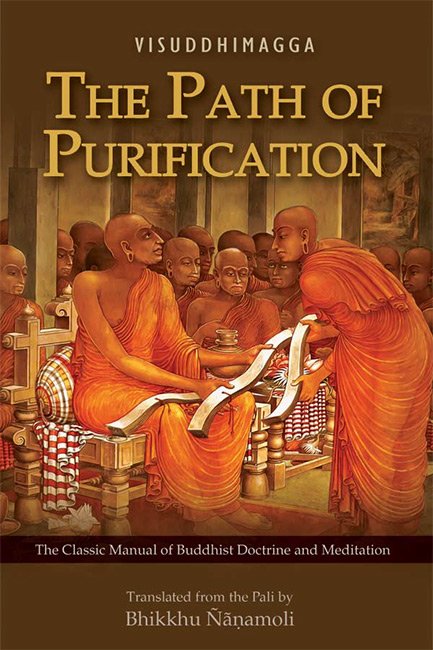Visuddhimagga (the pah of purification)
by Ñāṇamoli Bhikkhu | 1956 | 388,207 words | ISBN-10: 9552400236 | ISBN-13: 9789552400236
This page describes The Benefits of Concentration (continued) of the section The Supernormal Powers (iddhividha-niddesa) of Part 2 Concentration (Samādhi) of the English translation of the Visuddhimagga (‘the path of purification’) which represents a detailled Buddhist meditation manual, covering all the essential teachings of Buddha as taught in the Pali Tipitaka. It was compiled Buddhaghosa around the 5th Century.
The Benefits of Concentration (continued)
1. [373] It was said above with reference to the mundane kinds of direct-knowledge that this development of concentration “provides … the benefit of the kinds of direct-knowledge” (XI.122). Now, in order to perfect those kinds of direct-knowledge the task must be undertaken by a meditator who has reached the fourth jhāna in the earth kasiṇa, and so on. And in doing this, not only will this development of concentration have provided benefits in this way, it will also have become more advanced; and when he thus possesses concentration so developed as to have both provided benefits and become more advanced, he will then more easily perfect the development of understanding. So meanwhile we shall deal with the explanation of the kinds of direct-knowledge now.
2. In order to show the benefits of developing concentration to clansmen whoseconcentration has reached the fourth jhāna, and in order to teach progressively refined Dhamma, five kinds of mundane direct-knowledge have been described by the Blessed One.
They are:
(1) the kinds of supernormal power, described in the way beginning,
“When his concentrated mind is thus purified, bright, unblemished, rid of defilement, and has become malleable, wieldy, steady, and attained to imperturbability,[1] he directs, he inclines, his mind to the kinds of supernormal power. He wields the various kinds of supernormal power. Having been one, he becomes many …” (D I 77);
(2) the knowledge of the divine ear element;
(3) the knowledge of penetration of minds;
(4) the knowledge of recollection of past lives; and
(5) the knowledge of the passing away and reappearance of beings.
